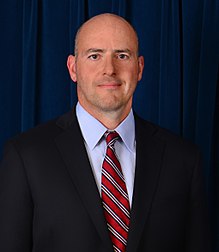A former banking executive has been found guilty of fraud involving millions in securities transactions.
The US Department of Justice announced the conviction of Ross McLellan, 47, of Hingham, Massachusetts a former executive vice president of State Street Bank & Trust.
The US DOJ noted in a press release: “A former executive vice president of State Street Bank & Trust was convicted today by a federal jury in Boston in connection with engaging in a scheme to defraud at least six of the bank’s clients through secret commissions applied to billions of dollars of securities trades.”
The US DOJ continued: “After a three-week trial, Ross McLellan, 47, of Hingham, Massachusetts, was convicted of one count of conspiracy to commit securities fraud and wire fraud, two counts of securities fraud and two counts of wire fraud. U.S. District Court Judge Leo T. Sorokin of the District of Massachusetts, who presided over the trial, scheduled sentencing for Oct. 10.
“State Street’s clients, including institutional investors managing pensions for retirees, entrusted McLellan and his subordinates to transition billions of dollars in assets,” said Acting Assistant Attorney General John Cronan. “Rather than living up to the responsibility to act in their clients’ best interests, McLellan and his coconspirators stole from these victims by charging hidden commissions and then lying about the scheme to cover their tracks. This conviction is a testament to the dedication of the FBI and prosecutors in the Criminal Division and U.S. Attorney’s Office to protecting innocent investors by investigating and prosecuting complex financial crimes.”

“Mr. McLellan defrauded State Street clients, violating his fiduciary duties and abusing his clients’ trust along the way,” said U.S. Attorney Andrew E. Lelling. “With systematic precision, Mr. McLellan and his conspirators added secret commissions to securities trades and took steps to conceal the scheme. In doing so, beyond directly defrauding institutional investors, Mr. McLellan chipped away at the savings of thousands of retirees whose pensions he was supposed to safeguard. After only five hours of deliberations, a jury found Mr. McLellan guilty of five of six counts in the indictment.”
In the trial, the USDOJ was able to prove that McClellan and his co-conspirators: “conspired to add secret commissions to fixed income and equity trades performed for at least six clients of the bank’s “transition management” business, which helps institutional clients move their investments between and among asset managers or liquidate large investment portfolios. The commissions were charged on top of fees the clients had agreed to pay the bank, and despite written instructions to the bank’s traders that generally reflected that the clients were not to be charged trading commissions. McLellan, Pennings (another co-conspirator) and Boomgaardt (a third co-conspirator) took steps to hide the commissions from the clients and others within the bank, including by directing that the commissions not be broken out in post-trade reports.”
As one example the USDOJ said McClellanin June 2010, along with Boomgaardt requested that the bank’s traders provide them with the reported daily high and low prices of securities the bank had traded for the client so that they could determine the amount of the commissions to be applied to each security without attracting the client’s attention.








